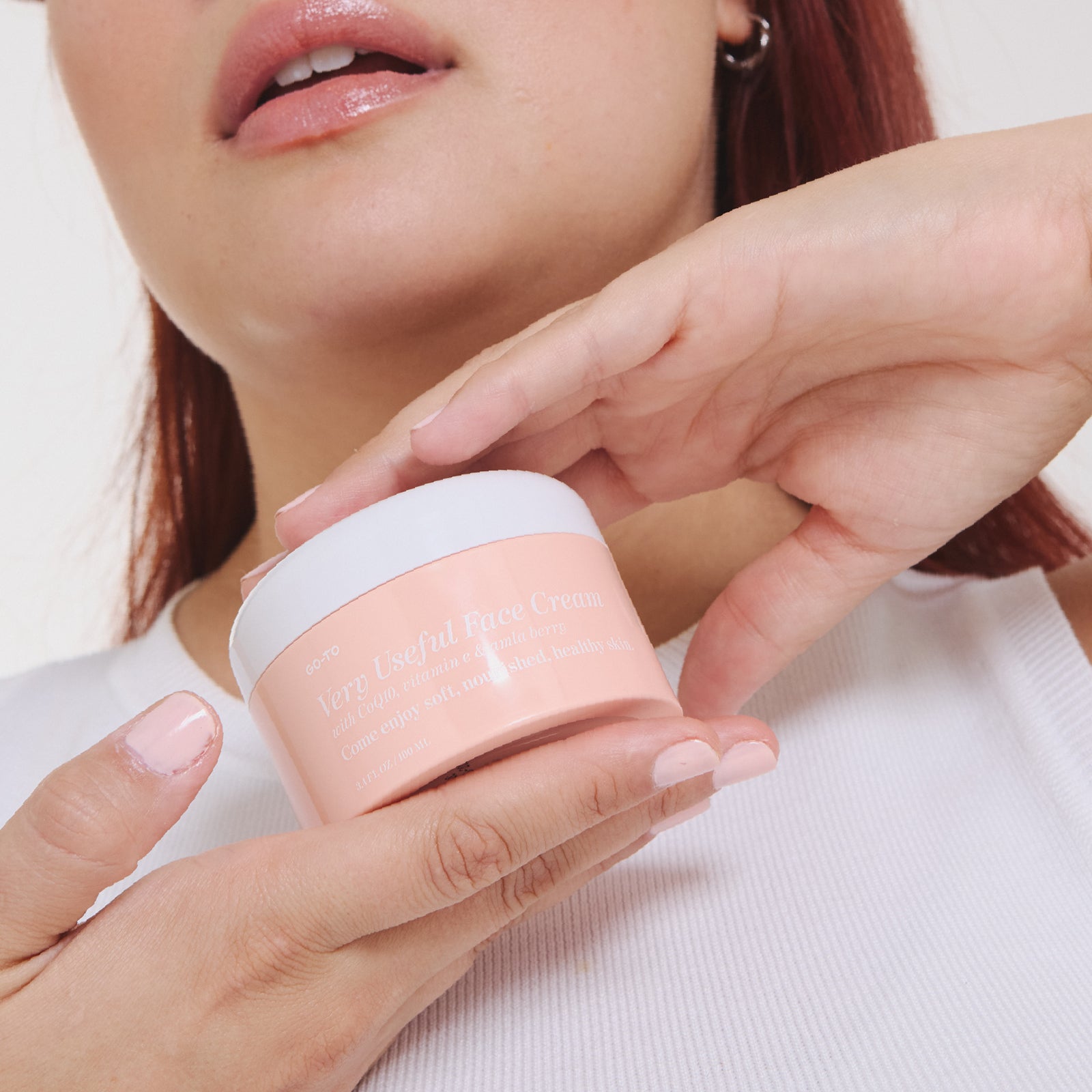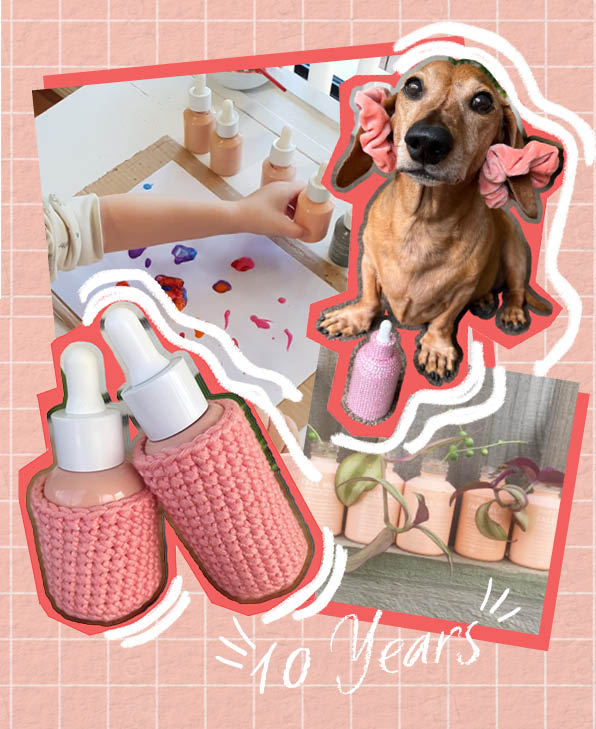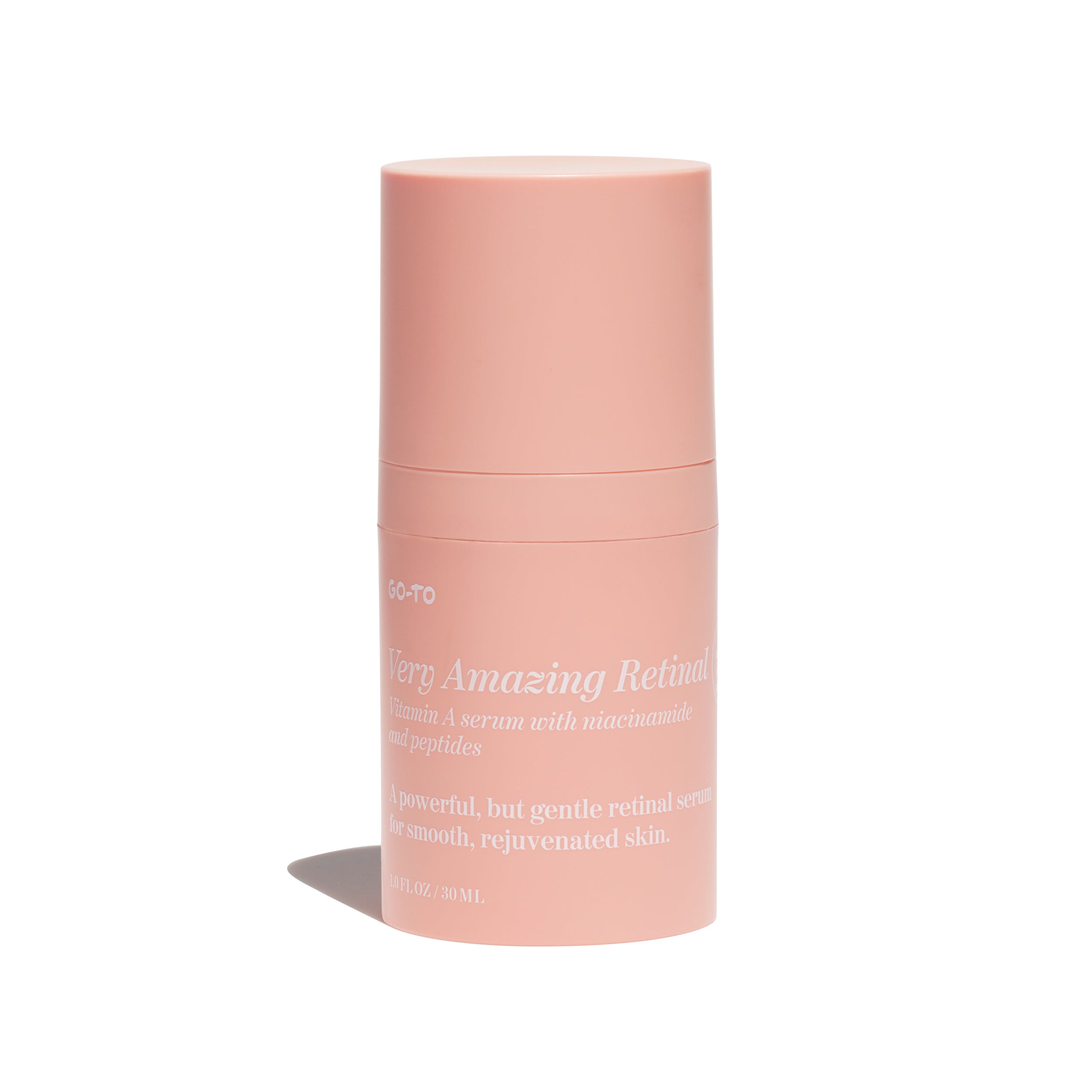WHAT
Very Luxe Face Cream was tested by an independent clinical testing facility in the UK, under standardised conditions. Princeton Consumer Testing are industry leaders in cosmetic testing and clinical trials; their specialist staff having conducted global studies with numerous brands in the skincare space since their inception in the early 1990s.
WHO
This involved 30 healthy female participants aged between 30-65 years, with visible fine lines and wrinkles. Princeton Consumer Testing is responsible for selecting, briefing, and onboarding all willing participants. They had no knowledge of it being a Go-To product (before, during, or after the trial) nor were they in contact with our Formulations team.
HOW
Participants were instructed to use Very Luxe Face Cream as their daily moisturiser, and to apply generously morning and night, for the full 12 weeks. They were instructed to maintain their current skincare routine too. (For any Nosy Nellie’s we are not privy to what other products and brands our participants use.)
Similarly, participants were not allowed to introduce any new products into their routine throughout the trial period, so that any changes observed in the condition of their skin could be confidently attributed to the introduction of Very Luxe Face Cream.
Because the participants added Very Luxe Face Cream into their routine, in replacement of their current trusted moisturiser, they tested this product with the same real world directions for use that we would (and do!) provide our customers.
RESULTS
Skin firmness, elasticity and suppleness is measured by an instrument called a Cutometer® (cute, right!). The device uses suction to calculate how firm skin really is by seeing how much it resists the suction of the device. The less skin that is sucked up, the firmer it is. When the suction is stopped and the skin relaxes, elasticity is calculated by the rate at which it does this. The more elastic the skin the faster it will relax to where it was before the suction was applied, and the less elastic the skin the slower it will take to spring back.
When we mention claims about the skin barrier strength, this is aligned with transepidermal water loss (TEWL), which describes how much water evaporates from the skin. Using a Tewameter®, with sensors that measure moisture levels in the skin based on both temperature and humidity, this evaporation or loss of water is considered to be proportionate to how intact or strong the skin barrier is. Skin that is deficient of certain properties or otherwise impaired will have a greater rate of evaporation than one that is considered to have good barrier function.
To measure roughness and smoothness of the skin, Princeton Consumer Testing facility created skin surface replicas of all participants (specific to the crow’s feet area). They then tested these replicas using a technique known as laser profilometry. This means they were able to measure how rough the skin is by shining an angled laser across the surface to create a graphical reproduction and calculate the change in wrinkles and fine lines.
The results obtained were statistically significant. Princeton Consumer Testing recommended a pool of 30 participants given the design of the Very Luxe Face Cream study, and this being a number plausible of determining large scale trends.









